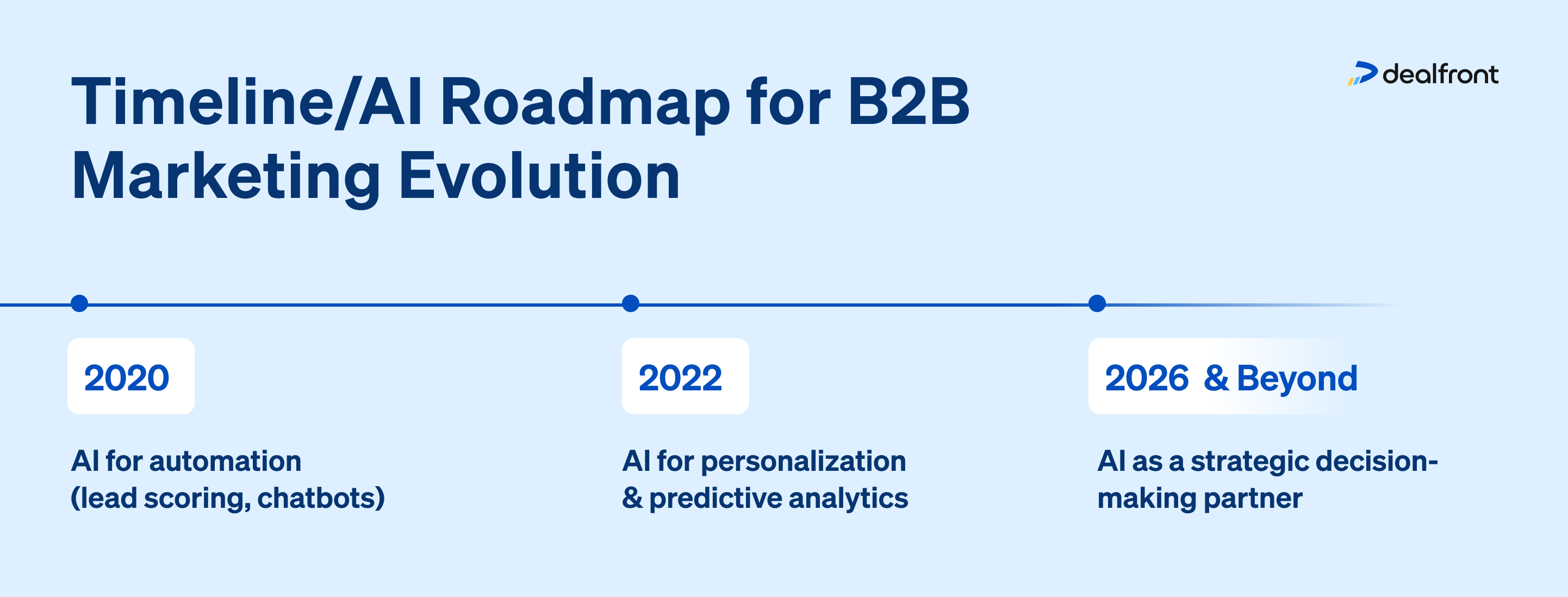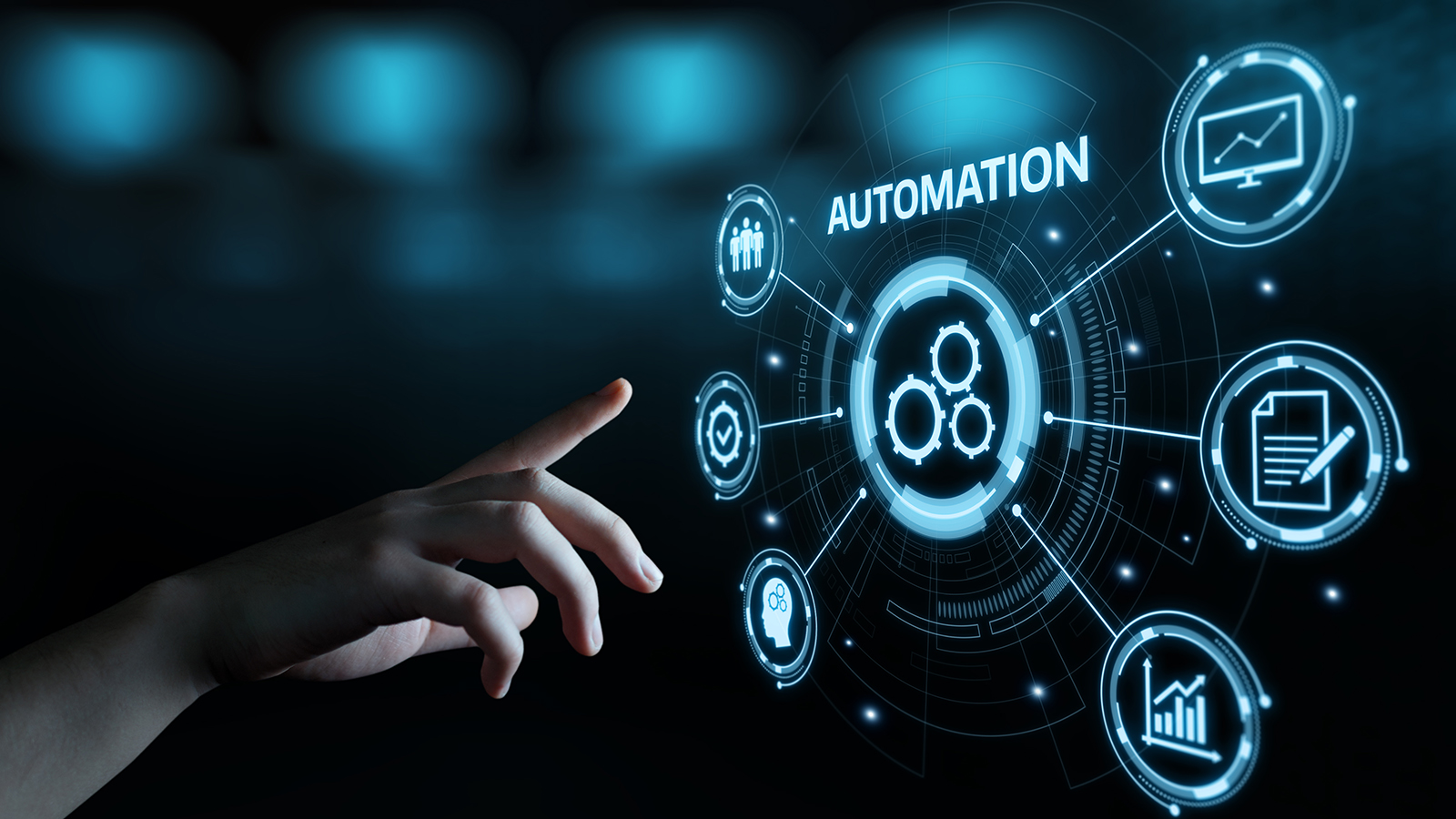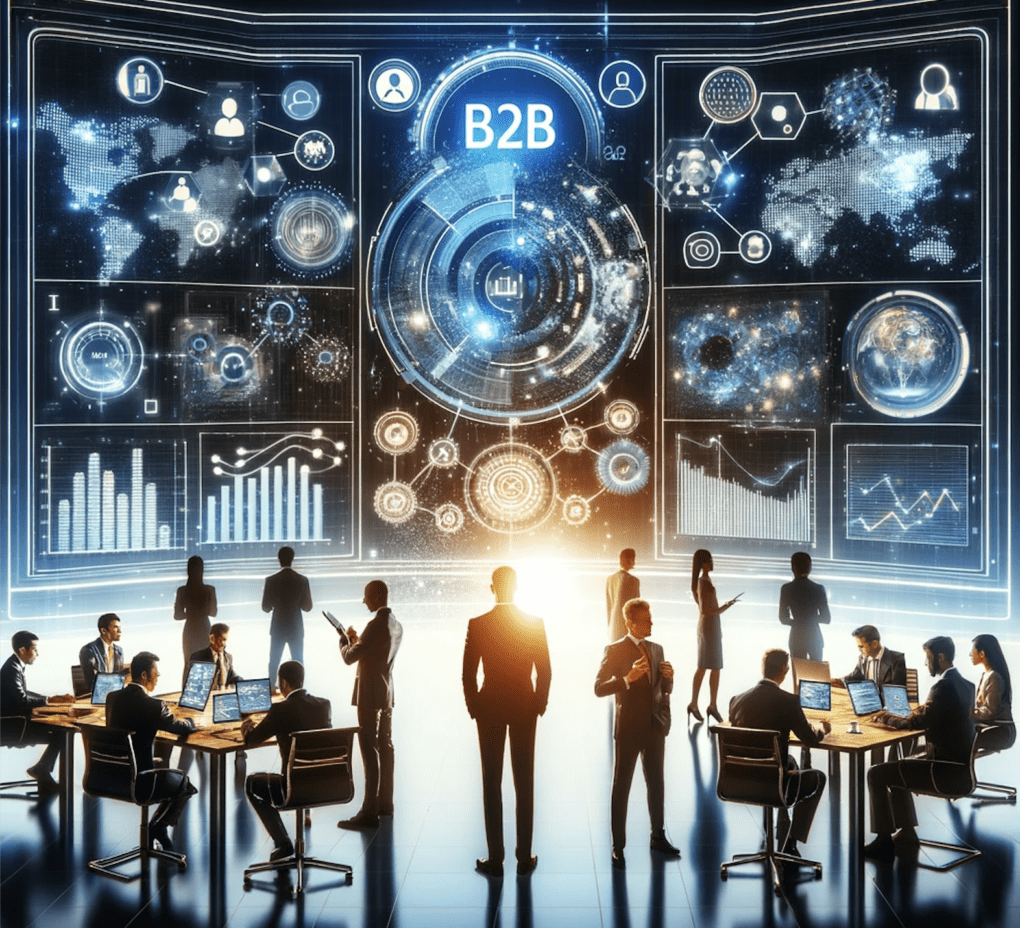How AI Automation For B2B drives digital transformation in B2B companies
Wiki Article
Unlock Effectiveness and Development With AI Automation for B2B Business
AI automation is changing the landscape for B2B companies. It enhances procedures and lowers reliance on human intervention. This shift permits services to make quicker, data-driven decisions. As organizations check out which refines to automate, they have to additionally consider the right devices to execute. Obstacles remain in embracing AI technology. The implications of these modifications could shape the future of many companies in ways yet to be totally understoodUnderstanding AI Automation in the B2B Context
As services increasingly seek performance, understanding AI automation in the B2B context comes to be crucial. AI automation entails utilizing sophisticated modern technologies to simplify procedures, decrease human intervention, and improve decision-making processes. In the B2B landscape, this can materialize in different forms, such as automating customer care interactions, handling supply chain logistics, or optimizing marketing projects. Business can take advantage of AI to examine substantial datasets promptly, enabling them to determine trends and understandings that educate tactical selections. Moreover, AI systems can integrate flawlessly with existing modern technologies, giving a cohesive system for taking care of business functions. This understanding lays the groundwork for companies to explore how AI can change their operations, boost productivity, and ultimately foster lasting growth in a competitive market.Trick Benefits of Executing AI Automation

Recognizing Procedures Appropriate for Automation

Picking the Right AI Tools for Your Company
When B2B companies think about automating their processes, choosing the appropriate AI tools becomes crucial for attaining wanted end results. Companies must start by assessing their unique demands and objectives, guaranteeing alignment with business goals (Minarik AI). Evaluating the scalability, adaptability, and combination capabilities of prospective tools is important, as these variables determine lasting performance. Organizations should additionally take into consideration user-friendliness and the level of assistance offered by suppliers, as these aspects can affect effective implementation. Furthermore, assessing customer reviews and study can offer insights into just how particular AI options carry out in real-world situations. By thoroughly picking AI devices that fit their operational needs, B2B firms can enhance effectiveness and drive development while minimizing prospective interruptionsGetting Rid Of Difficulties in AI Fostering
B2B companies frequently come across significant difficulties in embracing AI modern technologies, particularly concerns connected to information high quality and resistance to transform administration. Poor data quality can impede the effectiveness of AI systems, while worker unwillingness to welcome brand-new processes can stall execution initiatives - AI Automation For B2B. Attending to these difficulties is vital for successful AI combination and optimizing its possible benefitsData High Quality Issues
Guaranteeing high information high quality is essential for the successful fostering of AI innovations in business-to-business atmospheres. Unreliable, insufficient, or out-of-date information can significantly impede AI efforts, causing erroneous insights and poor decision-making. Business usually deal with challenges such as data silos, incongruities throughout different sources, and a lack of standardized data formats. To get rid of these issues, organizations must purchase data cleaning, combination, and administration procedures. Implementing durable information management methods guarantees that the info fed into AI systems is trustworthy and pertinent. Cultivating a society of information high quality understanding among workers can boost information accuracy over time. By addressing information quality concerns, B2B business can launch the full potential of AI automation, driving effectiveness and development.Modification Management Resistance

Gauging the Influence of AI Automation
Measuring the impact of AI automation in B2B companies requires a clear understanding of key performance signs (KPIs) that line up with company purposes. Efficient data analysis methods are crucial for translating the outcomes, while robust ROI assessment strategies aid figure out best site the financial advantages of automation initiatives. With each other, these elements supply an extensive structure for reviewing AI's payments to organizational success.Key Performance Indicators
Trick performance indicators (KPIs) work as vital tools for B2B firms to assess the effectiveness of AI automation efforts. By establishing clear metrics, organizations can measure enhancements in operational effectiveness, cost reduction, and earnings growth directly attributable to automation. Typical KPIs consist of cycle time decrease, mistake rates, consumer satisfaction scores, and staff member performance degrees. These indicators offer insights right into just how AI systems are maximizing processes and boosting overall efficiency. Additionally, tracking KPIs enables business to identify areas for further enhancement and to line up AI automation initiatives with strategic company objectives. Eventually, a well-defined framework of KPIs assurances that B2B firms can quantitatively evaluate the influence of AI automation on their operations and drive continuous development.Data Analysis Techniques
Reliable data evaluation strategies play an essential function in evaluating the influence of AI automation within B2B firms. By making use of analytical approaches, companies can identify fads and patterns in functional data, enabling them to examine the performance acquires attained via automation. Methods such as regression evaluation and time collection forecasting offer understandings into how AI-driven procedures influence performance and decision-making. Furthermore, data visualization tools can successfully communicate searchings for to stakeholders, helping with informed tactical decisions. Artificial intelligence formulas can better enhance evaluation by anticipating future results based on historic data, using actionable understandings. Inevitably, these methods enable B2B firms to gauge success and enhance their AI automation campaigns, making sure placement with service objectives and improving overall efficiency.ROI Assessment Techniques
Reviewing the roi (ROI) of AI automation is vital for B2B business seeking to understand the financial implications of their technological campaigns. Business can use different ROI analysis approaches to assess the efficiency of AI executions - Growth Systems For B2B. One effective method involves determining expense savings by comparing operational costs before and after automation (Minarik AI). Furthermore, measuring performance improvements via crucial efficiency signs (KPIs) helps quantify the advantages of AI. Customer fulfillment metrics can likewise supply insights right into the impact of automation on service top quality. To guarantee a thorough assessment, business ought to consider both direct abstract benefits and financial returns, such as improved decision-making abilities and affordable benefit. This multifaceted examination allows B2B business to make educated choices regarding future investments in AI modern technologyFuture Trends in AI Automation for B2B Companies
What developments exist ahead for AI automation in B2B firms? Arising patterns indicate a considerable shift towards enhanced information analytics capabilities, making it possible for organizations to make more informed choices. Anticipating analytics will certainly come to be increasingly necessary, permitting companies to expect market adjustments and client needs. In addition, the integration of AI with Internet of Things (IoT) innovation is expected to simplify operations by giving real-time insights and automation of procedures. Business will certainly likewise concentrate on enhancing consumer experiences with customized advertising driven by AI algorithms. Furthermore, developments in all-natural language handling will certainly assist in much better communication in between customers and businesses. As these patterns develop, B2B firms must adjust to utilize AI automation properly, guaranteeing continual growth and competitive advantage.Often Asked Inquiries
What Industries Benefit one of the most From AI Automation in B2B?
Manufacturing, money, healthcare, and logistics markets profit one of the most from AI automation in B2B. These sectors leverage AI to maximize procedures, enhance decision-making, and improve general operational performance, driving considerable growth and development.How Does AI Automation Impact Employee Duties and Responsibilities?
AI automation reshapes employee roles and responsibilities by enhancing repetitive jobs, making it possible for employees to concentrate on tactical initiatives. This change fosters skill advancement, improves performance, and urges collaboration, eventually driving business growth and technology.What Are Common Misconceptions About AI Automation in B2B?
Usual false impressions concerning AI automation in B2B include concerns of job loss, beliefs that AI can totally change human judgment, and undervaluing the relevance of cooperation between AI systems and employees for optimal results.How Can Companies Make Certain Data Personal Privacy With AI Automation?
Companies can ensure information personal privacy with AI automation by applying robust security procedures, adhering to regulative conformity, conducting regular audits, and training employees on information managing practices to minimize dangers and protect sensitive info.What Are the Costs Connected With Carrying Out AI Automation?
The expenses related to applying AI automation consist of software program purchase, infrastructure upgrades, training personnel, ongoing maintenance, and prospective downtime during assimilation. In addition, companies may sustain expenses connected to data safety and security and conformity measures.Gauging the influence of AI automation in B2B companies requires a clear understanding of crucial performance indications (KPIs) that line up with organization goals. Key performance signs (KPIs) offer as important devices for B2B companies to evaluate the efficiency of AI automation initiatives. Effective data analysis methods play a necessary role in examining the effect of AI automation within B2B companies. Examining the return on financial investment (ROI) of AI automation is necessary for B2B business looking for to understand the financial effects of their technological campaigns. What technologies exist ahead for AI automation in B2B companies?
Report this wiki page